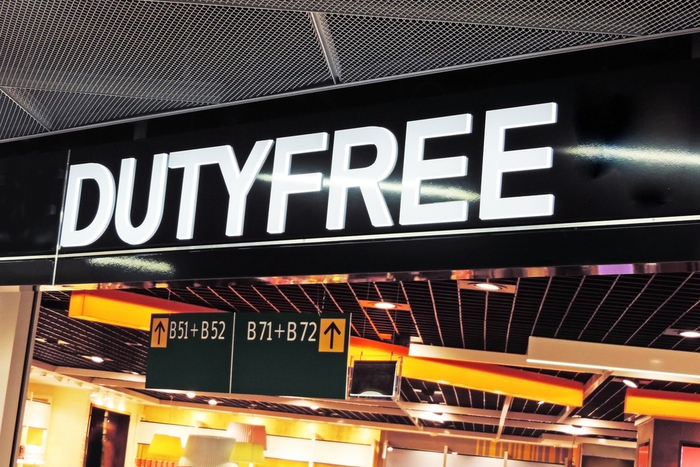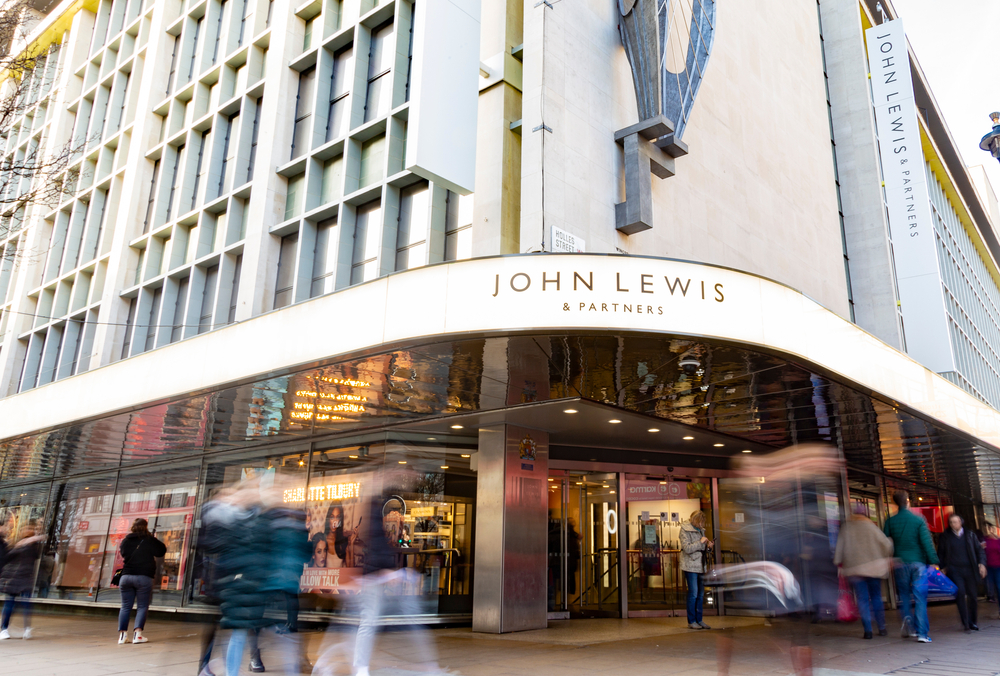With England currently in the middle of a second national lockdown, non-essential retail is not the only thing that has remain shut for at least another two weeks.
A ban on travelling for leisure and holidays is also in place, and restrictions on leaving your home effectively prevents travel to visit friends and family. Travelling abroad for work is still be permitted though, but remains subject to quarantine rules.
Retailers with shops in travel hubs – such as airports, train stations, coach terminals and others – will inevitably witness a drop in sales. Prior to the second lockdown, overseas residents made 398,000 visits to the UK from April to June 2020, marking a 96 per cent drop compared to the same period last year. Overseas residents also spent £218 million on their visits to the UK during the period, which was 97 per cent less than last year, according to the ONS.

Shopping at a travel terminal was once considered to be a simple process – a snack, a drink and then you’d be on your way to your destination. But in recent months, the Covid-19 pandemic has changed the way this works and has led to a plunge in overall travelling.
In recent years, train stations had become about much more than just grabbing a coffee to go, and despite the fact that train travellers usually have less time intervals than flying passengers, terminals have been ramping up their offerings.
However, with the travel industry in crisis, retailers that have a significant number of stores in travel terminals – such as WHSmith, Paperchase and Oliver Bonas – have been left to depend on their online channels.

WHSmith has even been relying on its high street stores to drive sales – a division of its business that was struggling before the pandemic. Just last week, WHSmith made a pre-tax loss of £226 million for the full year to August 31, compared with a profit of £135 million in 2019.
While the retailer’s high street stores saw a trading loss of £10 million, compared to a profit of £60 million the year before, WHSmith’s usually profitable travel arm was heavily impacted by restrictions on travel, losing £33 million compared to a profit of £117 million the year before.
The UK Government’s abrupt announcement in September regarding a new rule to prevent non-EU tourists from reclaiming VAT on purchases in the country – a move that could also end duty-free shopping in airports – also dealt a massive blow to an industry already on its knees due to the pandemic.

The government has since been criticised over the plans, which are slated to come into effect in January. The Treasury said it was making use of the end of the Brexit transition period to bring personal duty and tax systems in line with international norms.
Passengers will still be able to buy duty-free alcohol and tobacco products in British ports, airports, international train stations, and aboard ships, trains and planes, but the Treasury said it would be end tax-free sales in airports of goods such as electronics and fashion for passengers travelling to non-EU countries.

Airport Operators Association chief executive Karen Dee said that by removing the concession, the UK Government was “needlessly harming” the revenue of retailers and airports.
“Our industry is weathering the worst crisis in the history of civil aviation, it can scarcely afford another hammer blow like this,” she said.
“Many foreign visitors will now choose to go elsewhere, attracted by the beneficial tax and excise regimes of our European competitors.
“This will harm not only UK airports, but the high street stores that hugely benefit from tourists.”
“One thing that’s clear is the need for businesses to innovate and be flexible”
The Moodie Davitt Report warned that the loss of the VAT airside concession will cost the UK economy £2.1 billion and will put 19,400 jobs at risk nationally, should the government push ahead with the measure.
UK Travel Retail Forum secretariat Cameron Gray said that in addition to unfairly increasing the cost of airside shopping for items such as perfumes, cosmetics and confectionary for British passengers traveling abroad, the policy is also “out of touch” with international standards.
“Industry has warned that it will undermine UK aviation competitiveness, with EU member airports gaining an overnight advantage over their UK counterparts, and could force smaller UK airports who rely on passenger retail out of operation altogether,” he said.
While most retailers have suffered in terms of trading this year, Andrew McClellan, chief business development officer at Sim Local, said those specifically in the travel sector have had to endure every conceivable headwind, with “no respite from the storm”.
“It’s hard to imagine a more challenging set of market conditions, and without online sales channels or sufficient footfall to allow trading recovery, it has been inevitable that once-viable stores have closed and good employees have lost jobs, as a result,” he said.
However, Adam Walford, partner at law firm Howard Kennedy, argued that travel hub retailers have the advantage of having central and convenient locations which form part of many people’s daily routines even now. – making them ideal places for click-and-collect.
“If you live in a commuter town, this may be your best option for getting your non-essentials,” he said.
“It is also possible that fewer journeys means fewer purchasing moments but larger transaction values, as we have seen with the grocers during the lockdowns.”
Network Rail’s head of retail Daniel Charles said that while the message to stay at home naturally impacts footfall, there are still thousands of people – such as critical workers and those who cannot work from home – travelling through stations every day who rely on retailers in these travel hubs, whether that be for grabbing a coffee or picking up lunch.
“Prior to the lockdown, we had 70 per cent of our entire managed station retail estate open, and since the announcement of the second lockdown we still have 45 per cent up and trading,” he said.
“Our industry is weathering the worst crisis in the history of civil aviation”
“Again, this has been helped by the changes associated relating to ‘click-and-collect’ but also the ability for hospitality units to stay open if they are offering a ‘take away’ service which a large number of our partners are capable of doing, therefore helping to mitigate against excess stock.”
Charles also told Retail Gazette that Network Rail has seen penetration remain in line with its passenger numbers after introducing enhanced cleaning and safety measures across its stations and in retail units.
“There’s no doubt that this is a challenging time for retail, but we will continue to support our partners and help them adapt where necessary in the coming weeks and months,” he said.
“One thing that’s clear is the need for businesses to innovate and be flexible, and we’re already seeing brands find new ways to engage with their customers, such as Pret’s monthly subscription service.”
He added that London’s usually-busy Liverpool Street station had 140,000 people – down 70 per cent from last year – using the station in the middle of October.
“That’s still 50 million people a year,” he explained.
“So even when passenger numbers are significantly decreased, there are still opportunities for retail outlets.
“Over the last 10 years or so, our retail has developed and evolved to support our transport hubs and retail outlets have become destinations in their own right.”
Meanwhile, Walford said that the desire to make purchases while in transit was still “alive and well”, and when normal travel returns, so will these spending habits.
“Certainly we are not seeing the end of bricks-and-mortar travel retail,” he said.
Click here to sign up to Retail Gazette‘s free daily email newsletter


















